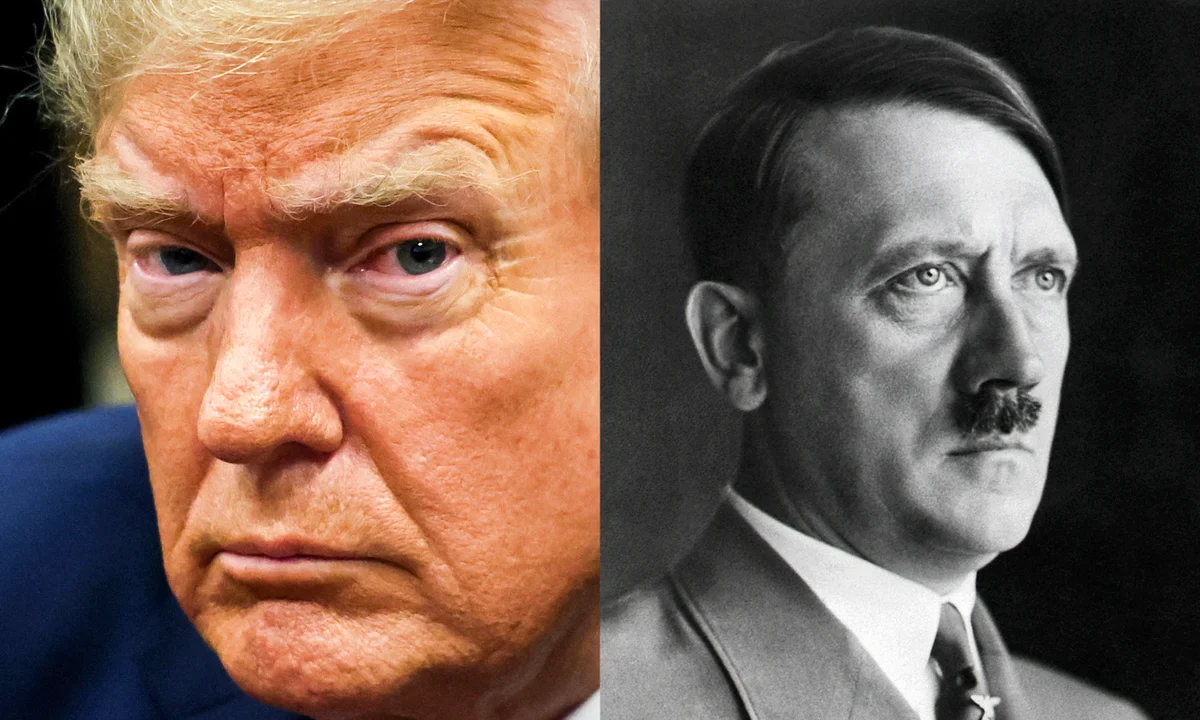Beyond Hitler: Analyzing Trump's Shocking Vision for North American Territory!

WASHINGTON D.C./BERLIN – Comparisons between political leaders and Adolf Hitler are fraught with historical weight and often generate more heat than light. Yet, questions arise, particularly when discussions touch upon nationalism and territorial ambitions. With Donald Trump currently serving as the 47th U.S. President, his administration's actions and statements regarding territory – notably Canada, Greenland, and the renaming of a major gulf – inevitably draw queries when viewed against the backdrop of 20th-century European history, specifically Nazi Germany's catastrophic expansionism. But do these comparisons hold analytical weight, particularly concerning imperialism?
The historical context is starkly different. Nazi Germany, under Hitler, pursued a path of ideologically driven military conquest that unleashed World War II and the Holocaust. In contrast, modern Germany stands as a testament to transformation, deeply committed to democracy, international cooperation, and the rule of law over the rule of power, having achieved remarkable progress since the devastation of the war. The United States, under President Trump, operates as a global superpower within a post-war international system, albeit one he has frequently challenged.
Hitler's Imperialism: A Defined Catastrophe
Nazi Germany's expansionism was not merely about acquiring land; it was a systematic project rooted in virulent ideology:
- Lebensraum: The explicit goal of conquering vast territories in Eastern Europe for German settlement, based on racial hierarchy.
- Racial Extermination: The belief in Aryan supremacy justified the subjugation and genocide of millions deemed "inferior," most horrifically manifested in the Holocaust.
- Military Aggression: Implemented through direct military invasion and annexation (Austria, Czechoslovakia, Poland, etc.), fundamentally aiming to dominate the European continent.
Trump's Actions: Nationalism and Unprecedented Rhetoric
President Trump's approach, while highly controversial and disruptive, operates on a different plane:
- Canada as 51st State?: Research confirms President Trump has repeatedly suggested Canada should become the 51st U.S. state, often linking this to trade disputes and arguing it would benefit Canadians. While the seriousness and feasibility are debated, the rhetoric itself marks a departure from traditional diplomatic norms.
- Greenland Acquisition: Trump's interest in Greenland, first expressed as a desire to purchase the territory during his previous term, has reportedly persisted and intensified. Recent reports indicate a harder line, suggesting US control is needed for "world peace" and national security, with Trump allegedly refusing to rule out force if Denmark doesn't sell. This sustained focus on acquiring the territory, moving beyond a simple purchase offer, raises significant questions about sovereignty and intent.
- Renaming the Gulf: In early 2025, President Trump signed Executive Order 14172, officially renaming the Gulf of Mexico the "Gulf of America" for U.S. federal government use, citing its importance to American heritage and economy. This symbolic act, while contested internationally, asserts a form of national claim over a shared body of water.
Comparing Ambitions: Scale, Ideology, Method
Is Trump's stated wish for territorial acquisition or influence similar to Hitler's imperialism? A careful analysis reveals fundamental differences:
- Ideology: Hitler's actions stemmed from a comprehensive ideology of racial supremacy demanding conquest and genocide. Trump's motivations appear rooted in transactional nationalism, perceived strategic advantage ("America First"), and perhaps, as some analysts suggest, a "19th-century idea" of national greatness through expansion, but crucially lack the systematic, racial-exterminationist core of Nazism.
- Method: Hitler used Blitzkrieg and total war. Trump employs rhetoric, executive orders, economic pressure (tariffs), and has expressed interest in purchase or, reportedly, potential force regarding Greenland. While concerning, these methods are distinct from the large-scale military invasions and systematic violence of the Nazi regime.
- Outcome: Hitler's imperialism led directly to a world war that killed tens of millions and the Holocaust. Trump's actions have led to diplomatic friction, trade disputes, international criticism, and internal US debate, but not comparable global conflict or genocide.
Conclusion: A Different Kind of Challenge
While President Trump's rhetoric and actions concerning Canada, Greenland, and the renaming of the Gulf of America are unprecedented in modern US presidential history and raise valid concerns about respect for international norms, sovereignty, and potential coercion, they do not equate to the systematic, ideologically-driven, genocidal imperialism of Adolf Hitler. The scale, the underlying ideology, the methods employed, and the resulting consequences are vastly different.
Drawing direct parallels risks trivializing the unique horrors of the Nazi era and misinterpreting the nature of contemporary challenges. However, the analysis does highlight how nationalist rhetoric and unconventional approaches to territory and international relations under the Trump administration create uncertainty and tension, prompting historical reflection and ongoing debate about America's role in the world. Germany's journey from catastrophic imperialism to a stable democracy underscores the profound consequences of different paths taken by world powers.




![From Kathmandu to the World: How Excel Students Are Winning Big [Admission Open]](https://nepalaaja.com/img/70194/medium/excel-college-info-eng-nep-2342.jpg)
